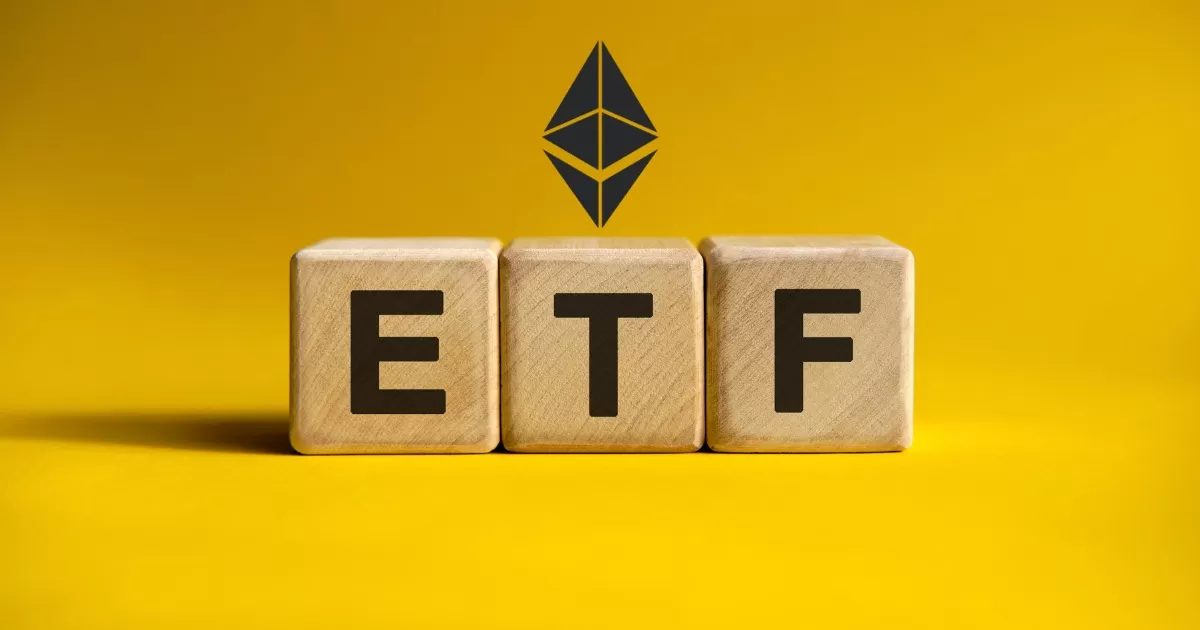Ethereum Exchange-Traded Funds (ETFs), which were launched last year, are financial products issued by asset managers that allow their clients to invest in Ethereum without directly owning it.
Ethereum ETFs track the price of Ethereum (ETH), the second-largest cryptocurrency by market capitalisation—the ETFs trade like stocks on exchanges. Holding ETH or ETH futures provides liquidity and diversification, enhancing your crypto investment experience.
An Exchange-Traded Fund (ETF) is a financial instrument traded on stock exchanges that tracks the performance of an underlying asset, index, or sector, such as stocks, bonds, or cryptocurrencies like Bitcoin.
In Cryptocurrency, ETFS allow institutional and retail investors to invest in crypto assets without directly owning them. Asset managers usually issue ETFS to their client base, diversifying their investment opportunities.
At the time of the report, only two exchange-traded funds (ETFS) existed in the cryptocurrency industry. The Bitcoin and Ethereum ETFS were launched last year under the supervision of the Gary Gensler-led Securities and Exchange Commission. Renowned Asset Managers in the United States were involved in the launch, opening up Cryptocurrencies to their extensive client base and attracting liquidity into the Cryptocurrency Market.
Since their launch, Bitcoin ETFS have attracted an estimated $40.6 billion to $47.88 billion across 11 funds. BlackRock’s iShares Bitcoin Trust (IBIT) leads with $39.95 billion in cumulative inflows and $47.88 billion in net assets. Ethereum ETFS have seen modest inflows, totalling between $2.24 billion and $2.27 billion. The Cryptocurrency industry anticipates the launch of additional ETFS, with rumours circulating about an XRP and Solana ETF.
How Does an ETF Work
The core mechanism of an ETF can be described with one word: diversified risk. ETFs pool investor funds to purchase a diversified basket of assets, providing low-cost exposure to various markets.
Investors buy shares of the ETF, which can be traded like stocks throughout the day. For example, a Bitcoin ETF holds bitcoin or bitcoin futures, allowing investors to gain exposure without directly owning the cryptocurrency, simplifying access and reducing risk.
Reputable firms in the industry closely monitor crypto ETFS daily. Analytics firms like Farside Investors UK and Soso Value provide numbers and insights that reveal investor activity in the two existing ETFs.
The 9 Ethereum ETFs
The United States Securities and Exchange Commission, under the leadership of Gary Gensler, approved the launch of nine Ethereum ETF products last year following the success of Bitcoin ETFs.
Nine asset managers have issued Ethereum ETFS, as opposed to Bitcoin ETFS, 11. Various asset managers involved in Bitcoin ETFS have also issued Ethereum ETFS, offering their investors a range of options.
The nine asset managers issuing spot Ethereum ETFs in the United States include:
- BlackRock — iShares Ethereum Trust (ETHA)
- Grayscale — Grayscale Ethereum Trust (ETHE)
- Grayscale — Grayscale Ethereum Mini Trust (ETH)
- Bitwise — Bitwise Ethereum ETF (ETHW)
- Fidelity — Fidelity Advantage Ether ETF (FETH)
- 21Shares — 21Shares Core Ethereum ETF (CETH)
- VanEck — VanEck Ethereum ETF (ETHV)
- Invesco/Galaxy — Invesco Galaxy Ethereum ETF (QETH)
- Franklin Templeton — Franklin Ethereum ETF (EZET)
These ETFS track the spot price of Ethereum (ETH) and are listed on US exchanges, including Nasdaq, CBOE, and NYSE.
Ethereum ETF Approval and Future ETF Prospects
Nine Ethereum ETFs were approved last year, five months after eleven Bitcoin ETFs were approved. The approval was a pivotal moment for the crypto industry, opening up the second-largest crypto asset by market capitalisation to institutional and retail investors.
The SEC, under the leadership of Gary Gensler, approved the ETFs by posting an official document on its website, outlining its decision and stating that the products were consistent with SEC Standards. Bloomberg ETF Analyst James Seyffart collaborated on the move, announcing the development and analysing the impact on the broader cryptocurrency market.
Only two crypto-based ETF products exist, and the prospects of other products emerging remain a topic of speculation in the industry. Crypto assets such as Litecoin, Solana, and XRP have been identified as potential candidates for a crypto-based ETF.
The approval of the following crypto-based ETF depends on the US Securities and Exchange Commission (SEC), which is currently undergoing a transition. The new chairman, Paul Atkins, was recently confirmed by the US Senate in a 52–44 vote.
The Donald Trump administration, which has been strongly pro-crypto, could catalyse the launch of a crypto-based ETF. Which of the existing crypto assets would get the nod remains speculative and hinges on varying factors.

